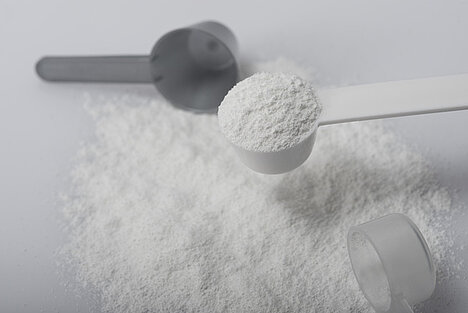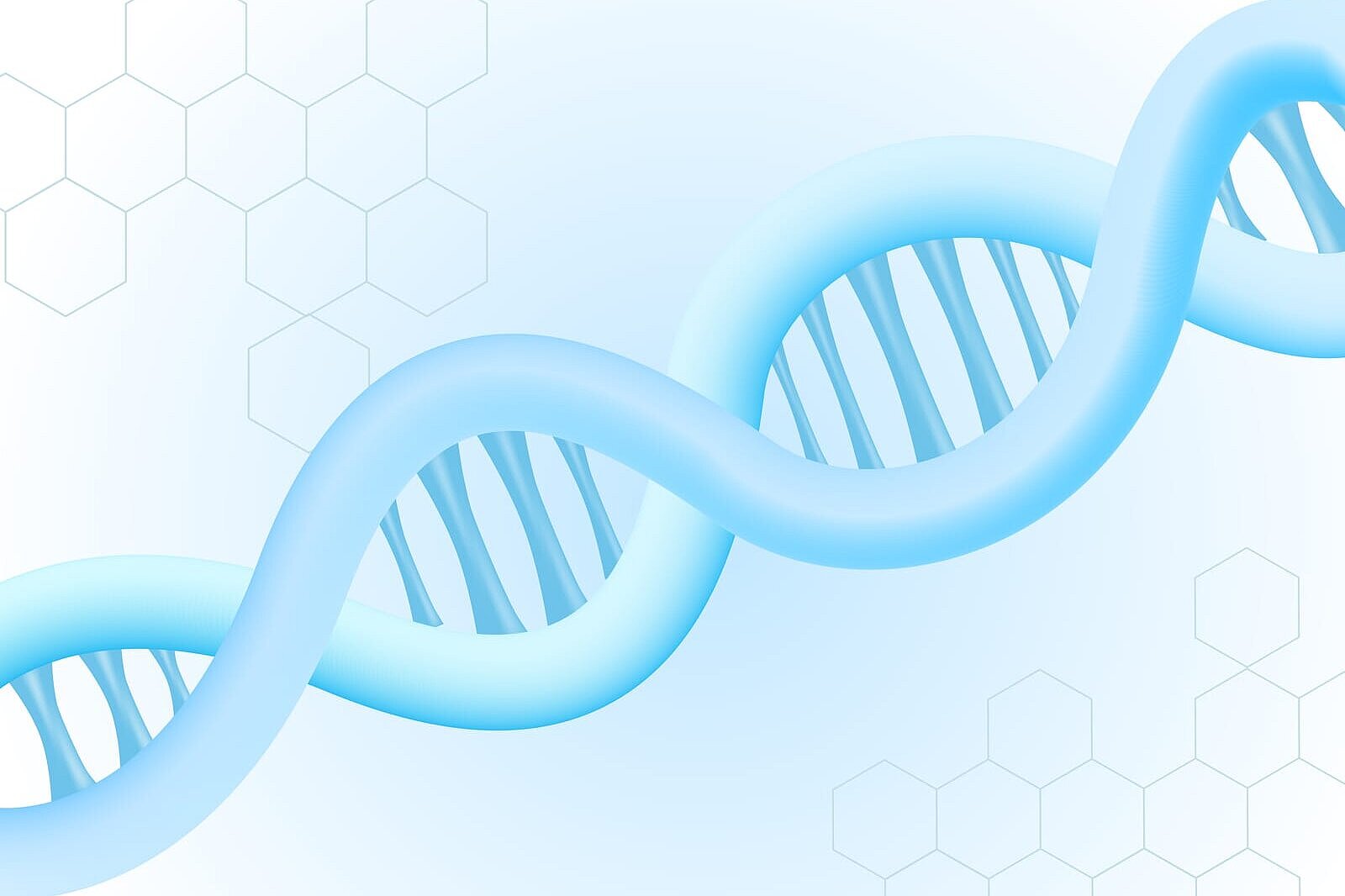Amino acids

Essential and non-essential amino acids
Not all amino acids can be produced by your dog. There are 10 essential amino acids that he must ingest with his food: Arginine, histidine, isoleucine, leucine, lysine, methionine, phenylalanine, threonine, tryptophan and valine. Taurine is also essential for cats. The remaining 10 amino acids are non-essential, i.e. your dog can make them from other amino acids or nutrients: Alanine, aspartic acid, cysteine, glutamine, glutamic acid, glycine, proline, serine, tyrosine and aspartic acid.
Benefits of amino acids for dogs
Amino acids have many positive effects on your dog's health and well-being. For example, they can:
- Maintain or increase muscle mass
- Promote wound healing
- Keep the coat shiny and healthy
- Improve digestion
- Strengthen the immune system
- Support stress reduction
- Slow down the ageing process
Disadvantages of amino acids for dogs
Even though amino acids are vital for your dog, problems can occur if they get too much or too little of them. Too few amino acids can lead to deficiency symptoms such as weakness, hair loss, susceptibility to infections or growth disorders. Too many amino acids can lead to obesity, liver or kidney damage. It is therefore important that you give your dog a balanced diet that covers its need for high-quality proteins.
How to determine your dog's protein requirements
Your dog's protein requirements depend on various factors such as their age, weight, activity level or state of health. In general, the younger and more active your dog is, the more protein he needs. Older or sick dogs have a lower protein requirement. You can use the following guidelines as a guide:
- Puppies: 22 to 32 percent protein in dry food
- Adult dogs : 18 to 25 percent protein in dry food
- Seniors: 14 to 21 percent protein in dry food
These values may vary depending on the type of food. You should always check the manufacturer's instructions and consult your vet if you are unsure.
Which protein sources are good for dogs?
There are various sources of protein for dogs, such as meat, fish, eggs and dairy products. But not all proteins are created equal. The quality of a protein is determined by its digestibility and amino acid profile. This means: How well can your dog utilize the protein and how many essential amino acids does it contain? The higher the digestibility and the more essential amino acids a protein has, the better it is for your dog.
The biological value of a protein indicates how well it can be converted into the body's own protein. Animal proteins usually have a higher biological value than plant proteins. This is because they are more similar to your dog's own body proteins than plant proteins.
Animal protein sources include muscle meat, organs, eggs and dairy products. Plant-based protein sources include grains, legumes, nuts and seeds. You should make sure that your dog gets a variety of protein sources to ensure an optimal supply of all amino acids.
Amino acids are vital for your dog and should be included in the food in sufficient quantity and quality. They have many positive effects on your dog's health and well-being, but can also lead to problems if they are fed too much or too little.
Properties 3
Are you looking for other ingredients with a specific property?
Just click on them to find more.
If you notice any signs of hypersensitivity or poisoning in your dog, you should see your vet immediately. We are not a substitute for a vet, but we try to be as accurate as possible. Every dog reacts differently and we recommend you get a second opinion or consult your vet if in doubt.
Stay healthy and take good care of your four-legged friend!😊
Similar to Amino acids
What are peptides? Peptides are short chains of amino acids that are linked together by peptide bonds. Amino acids are the basic building blocks of proteins, which are essential for many functions in...
Protein is an organic compound consisting of amino acids. There are 20 different amino acids that can be combined in various ways to form proteins. The dog's body can produce some amino acids...
Your dog can produce many enzymes himself, e.g. pepsin in the stomach or alpha-amylases in the pancreas. These enzymes break down protein and starch. However, there are also enzymes that your dog...
Nucleotides are organic compounds that consist of a sugar, a phosphate and a nitrogen part. They form the building blocks of nucleic acids (DNA and RNA), which store our genetic information and pass...



